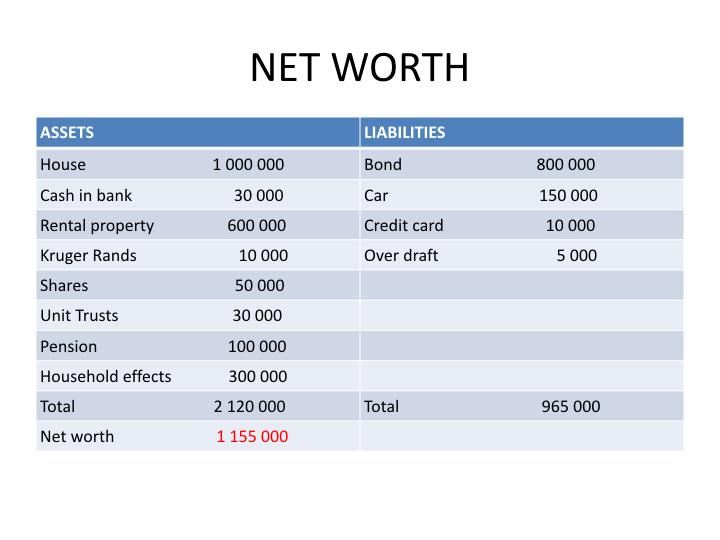The beginning of the new year is a great time to update your personal balance sheet.
The exercise is invaluable in your personal financial planning as it creates a snapshot of your actual worth in relation to what you own and what you owe. Your so-called “Net Worth”.
OWN – OWE = NET WORTH
All it takes is a sheet of paper with two columns listing the current value of all your assets on one side and your liabilities (the outstanding loans) on the other side. Subtracting the total liabilities from your total assets leaves you with a current value of what you are actually worth. This net worth provides you with a realistic view of how well you are doing with your financial planning. If the figure is growing year on year then you are on the way to improving your wealth. If it is not growing you are effectively getting poorer.

Bear in mind that your net worth needs to improve above the inflation rate to keep its real value. So if inflation is running at 6% then your net worth should be improving above this rate year on year to keep your net worth value real.
Ways to improve your net worth are found in:
Reducing your liabilities
Targeting your loans and getting rid of them sooner. Interest on debt is often higher than the returns found on investments. Especially, when one considers the risk needed to achieve the return. Paying off debt not only improves your net worth but also frees up more disposable income from the interest charged for you to invest more.
Acquiring growth assets
Investments that grow consistently over time should be targeted. Especially, those which compound your growth. In other words, investments which produce returns which you reinvest, effectively buying up more. Compound interest is a magical phenomenon in the financial world and needs consistent positive returns over the longest possible time to make its magic.
Keep a close eye on your personal balance sheet. It is the starting block towards financial freedom.
